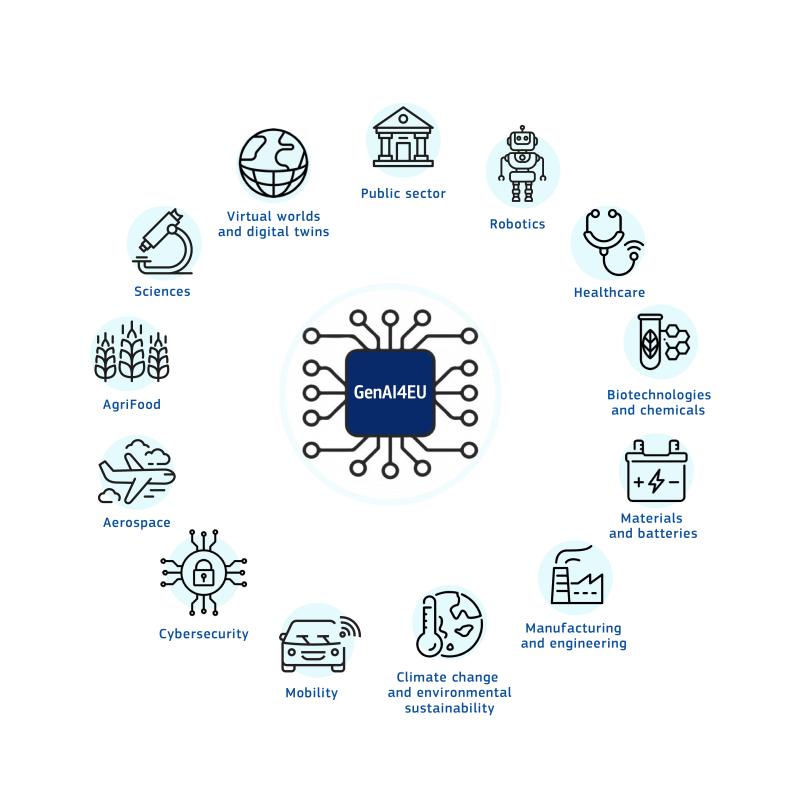The EU promotes actions and investments to create the right environment for the development and uptake of AI in Europe.
The EU has strong assets for creating a thriving startup and innovation ecosystem for AI. With an increasing number of fast-growing AI startups, universities and research centres, Europe possesses high-quality education, a talented pool of researchers and a strong scientific base.
The Communication on boosting startups and innovation in trustworthy AI outlines actions and investments for the coming years. Its aim is to empower EU startups and industries to fulfil their potential of becoming global frontrunners in the development of trustworthy advanced AI models, systems and applications.
Acquire, pool and share policy insights
The successful development and uptake of AI depends on a number of conditions. An efficient and functional governance and coordination framework is needed to build economies of scale and facilitate synergies. Also, large, high quality and secure data are required, together with the computation infrastructure to store, analyse and process this data.
Sharing knowledge and policy insights, and coordinating policy actions and investments can be an important competitive advantage. This is particularly true for such a rapidly developing area as AI. Since 2018, All Member States have made substantial efforts to develop national strategies on AI or to include an AI dimension in existing strategies and programmes. Their work has facilitated structured reflection on the priorities and objectives for the development and uptake of AI. And, it has triggered a wider public debate in many Member States.
The Commission actions in this area aim to:
- maximise the advantages of national strategies and accelerate proposed actions
- reap the full benefit of the technical expertise of expert groups on AI facilitated by the European Commission, such as the High-Level Expert Group on AI
- strengthen exchanges and collaboration through the Member States’ Group on AI and Digitising European Industry.
Tap into the potential of data
There are two main drivers that will boost innovation:
- "AI Factories" have been established by the Commission To bolster the leadership of European startups and stimulate the emergence of competitive AI ecosystems in the EU. These are open ecosystems formed around European public supercomputers and bringing together key material and human resources needed for the development of generative AI models and applications. AI Factories include AI-dedicated supercomputers, associated data centres - in proximity or connected via high-speed networks - and the human capital to use these resources effectively. Thus, they bring together supercomputing and AI experts, data specialists, researchers, startups and end users.
- The “GenAI4EU” initiative will stimulate the uptake of generative AI across the EU's key strategic industrial ecosystems, supporting the transition pathways outlined in the EU Industrial Strategy. “GenAI4EU” will encourage the development of large open innovation ecosystems fostering collaboration between AI startups and deployers of AI in industry and the public sector.

This will include industrial applications (such as manufacturing), while also reflecting the EU's commitment to greening its economy and addressing climate change. “GenAI4EU” key application areas will benefit from the “AI Factories” and the relevant high-quality data in the Common European Data Spaces.
The initiative will support the development of key applications leveraging generative AI to improve their performance or their capabilities. The newly established European AI Office will monitor the progress in developing these strategic applications through concrete implementation targets.
This monitoring activity will be linked to the assessment conducted through the European Transition Pathways Platform.
Latest News
Related Content
Big Picture




